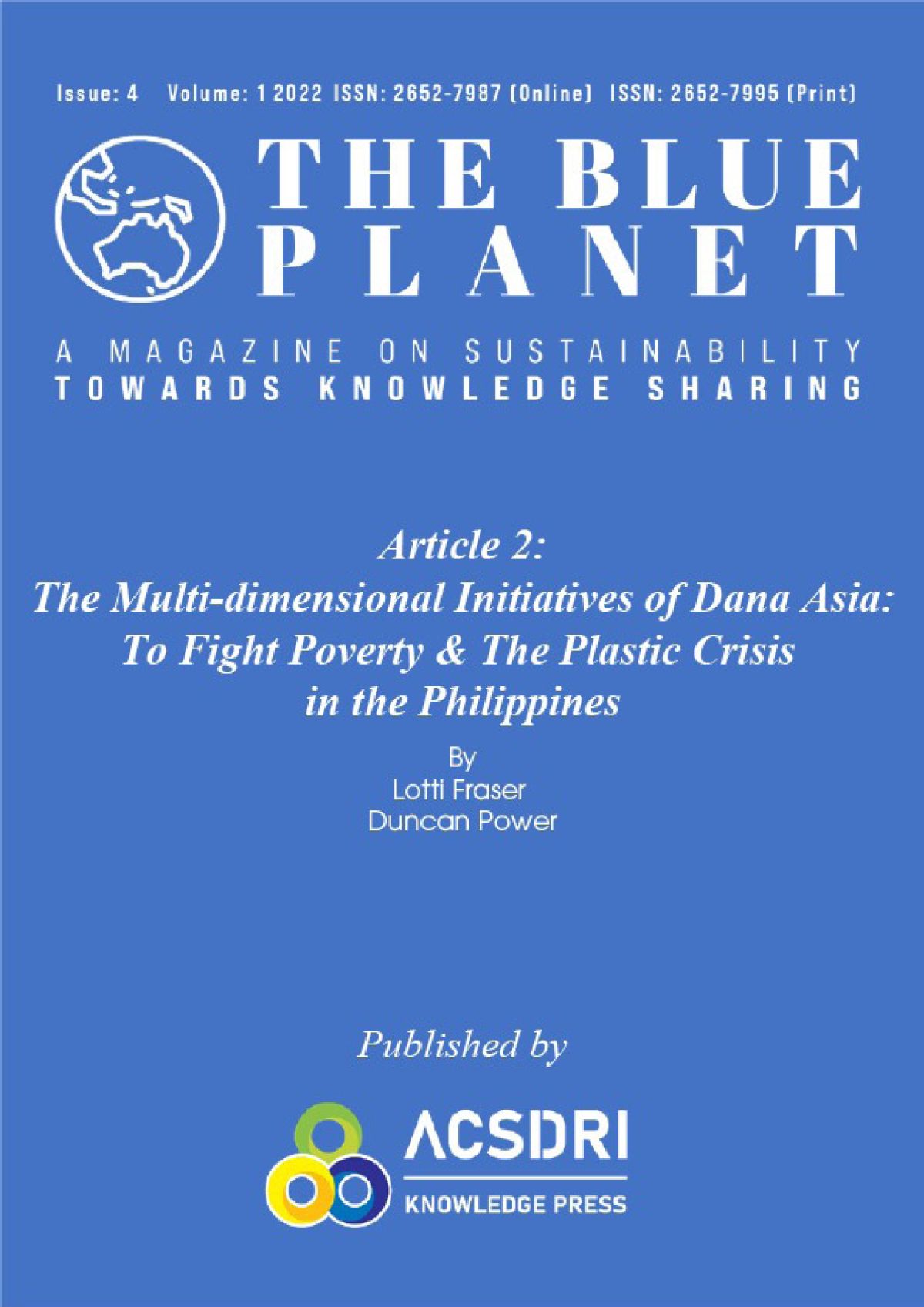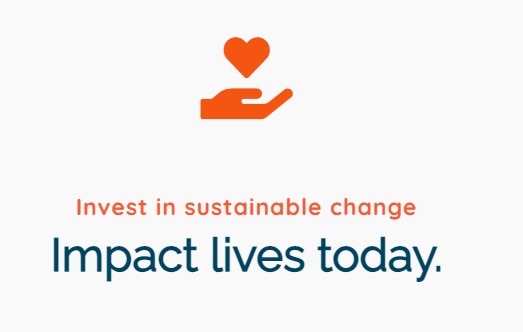THE MULTI-DIMENSIONAL INITIATIVES OF
DANA ASIA: TO FIGHT POVERTY &
THE PLASTIC CRISIS IN THE PHILIPPINES
Authors: Lotti Fraser & Duncan Power, Dana Asia
The Blue Planet-A Magazine on Sustainability
ISSN: 2652-7987 (Online) ISSN: 2652-7995 (Print)
Article: 2 Issue: 4 Volume: 1 2022
Photography by
Vijay Mandave
The Multi-dimensional initiatives of Dana Asia: To fight Poverty & the Plastic Crisis in the Philippines
Authors: Lotti Fraser & Duncan Power, Dana Asia
Key words: Dana Asia, Plastic Crisis, Fight Poverty, Microfinance, Social Enterprise, Philippines,
Key words: Dana Asia, Plastic Crisis, Fight Poverty, Microfinance, Social Enterprise, Philippines
Introduction
The planet faces a plastic pollution crisis. It is estimated that only 9% of plastic produced has been recycled, with a massive 79% of the world’s plastic ending up in landfills or the natural environment. Few places on Earth have more evidence of this problem than the Philippines. This island nation is the world’s third-largest contributor of plastic waste.
Every year, the Philippines contributes an estimated 0.75 million metric tons of mismanaged plastic into the ocean, including nearly 60 billion sachets, 17.5 billion shopping bags, and 16.5 billion sandwich bags. As a result, natural water sources are heavily contaminated, and waterways are clogged, leading to worsening flooding – an issue already exacerbated by climate change.
Compounding this crisis is the increasing levels of poverty brought about by the COVID-19 pandemic. The World Bank estimates that COVID-19 has plunged between 88 and 115 million people into extreme poverty. In the Philippines, 4 million more Filipinos were pushed into poverty in the first half of 2021, and many lost their livelihoods entirely. With so many finding themselves increasing in debt, it is increasingly difficult for the most vulnerable to lift themselves out of poverty.
Social Housing Community Project at Metro Manila.
The crisis in the Philippines is profoundly complex, and solutions are neither straightforward nor instant. One thing, however, is clear: environmentally and economically sustainable livelihood options are urgently needed for those living in poverty to survive and thrive.
Dana Asia Ltd is a registered non-profit organization in Australia and the Philippines. It is working to develop sustainable solutions to social problems in some of Southeast Asia’s poorest communities. To address the issue of plastic waste and to renew livelihoods many economically marginal communities in the Philippines, they are developing a new project concept within some of Metro Manila’s social housing development sites.

Social housing developments are growing across Metro Manila as part of a government resettlement scheme. The Philippines government’s Alternative Housing Program & People’s Plan for Informal Settler Families is working to relocate the capital’s 200,000 informal settler families (ISFs) living along dangerous flood-prone waterways to new social housing development sites.
These informal settler communities belong to the urban poor sector, primarily from poorer rural provinces to Metro Manila in search of jobs and livelihood opportunities. Associations and Cooperatives are forming to facilitate the resettlements, manage the housing estates, and ensure the rights of community members are upheld throughout the relocation process.
Though these new social housing sites provide safe homes for families, the newly formed communities need more amenities. One of the significant challenges for the urban poor is access to affordable goods.
With the market, families are forced to supermarkets to buy groceries, and for those living in extreme poverty, marked-up supermarket prices are often unaffordable. In some cases, housing developments have no access to main water, and drinking water is provided by private suppliers, making it expensive for households. Further input and support are needed to create thriving communities and micro-economies within the housing sites.
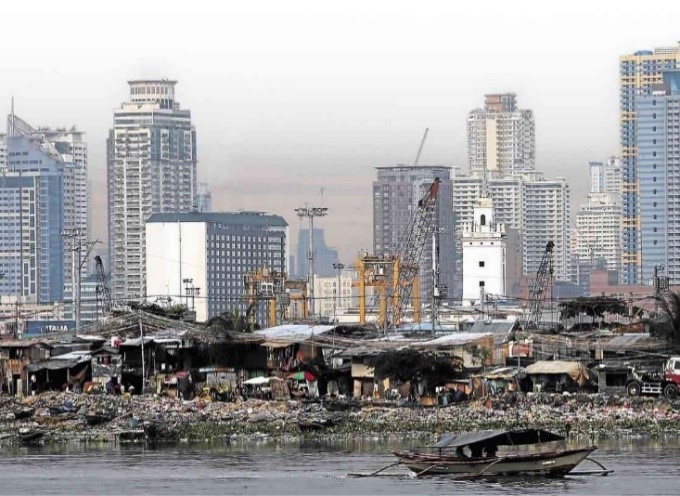
Social Entrepreneurial Intervention of Dana Asia
Over the past few years, Dana Asia has worked within some of these housing developments to address key challenges in coordination with the Federation of Housing Associations and government agencies. The primary objective is to stimulate new business activity through microfinance and capacity building, equipping community members with the resources to set up their own small businesses through which they can earn an income.
In addition, the setup of wet and dry markets in housing sites brings affordable goods to community members, plus business opportunities for producers and food vendors who can avail themselves of microfinance loans to start and grow their businesses. Grameen-style microfinance loans are specifically aimed at the poorest members of society who would otherwise not be eligible for traditional micro-loans, with low-interest rates and flexible repayment schemes.
All microfinance loan packages come with capacity building in financial management and business development, with mentorship to give business owners the best chance of success. Increased business activity means increased money circulating at the community level, enabling micro-economies to grow and lifting the overall GDP.
Dana Asia’s two impactful interventions:
1. Microfinance solutions for poverty reduction
With pilot projects complete and now being scaled and replicated, project evaluations have shown success for the community members who set up new businesses with the help of microfinance loans. As one example, Jay worked as a contractual maintenance worker, earning just 9,000 PHP (245 AUD) per month, but was forced to stop work in March 2020 when the Pandemic hit.
When Dana Asia initiated social business activities in his community in March 2021, Jay applied for a microloan to start a food vendor business. His first loan of PHP 7,000 (AU$190) gave him the start-up capital he needed to kickstart his business selling burgers and sandwiches. He and his wife worked hard to keep the business going through Manila’s strict community lockdowns and were able to repay the initial loan and secure a second and third loan of PHP 10,000 (AU$272) and PHP 15,000 (AU$408), respectively.
All loans were used to buy more capital and diversify the food items to attract more customers. In 2022, their average sales total PHP 4,000 (AU$109) per day, with a net income of PHP 1,000 (AU$27): more than twice the daily income when Jay was a contractual worker.
Jay’s story is just one example of the potential that this project concept can bring to urban poor communities.
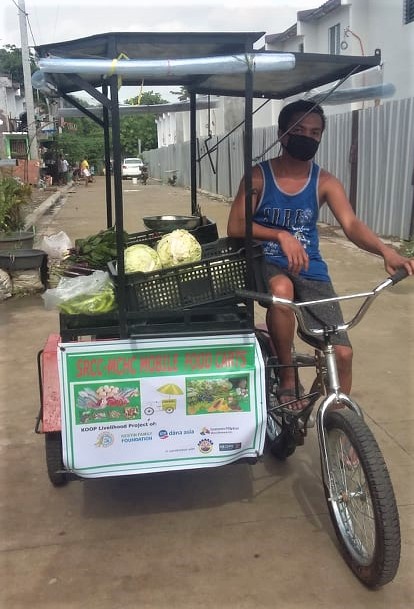
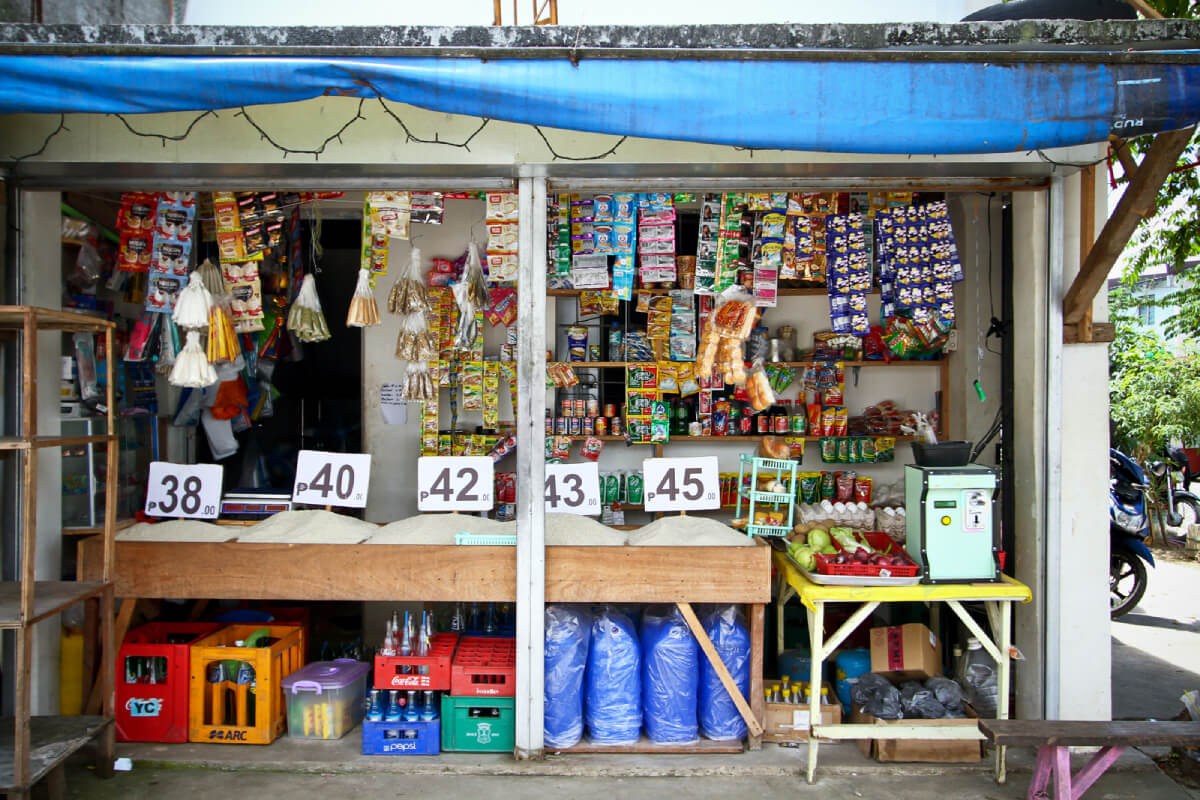
Dana Asia’s Microfinance for economic empowerment
Environmental sustainability: turning plastic waste into Eco-Bricks
With environmental sustainability being a growing issue within housing developments and plastic waste a particular area of concern, Dana Asia’s new project concept will address plastic waste management issues. Working in collaboration with local partners such as sustainable building firm Green Antz, recycling hubs will be established in social housing sites to collect plastic waste from local households and businesses to recycle it into eco-bricks to reduce plastic waste and improve the natural environment in urban poor communities.
These bricks are formed by breaking down the plastic and forming bricks under pressure – no high heat is required to set them, nor is much water used in the process making them highly environmentally conscious. The bricks meet building standards and can be used in constructing more social housing units and small business structures, such as sustainable consumer stores. More information on eco-bricks and other sustainable building materials can be found at https://www. greenantz.com/
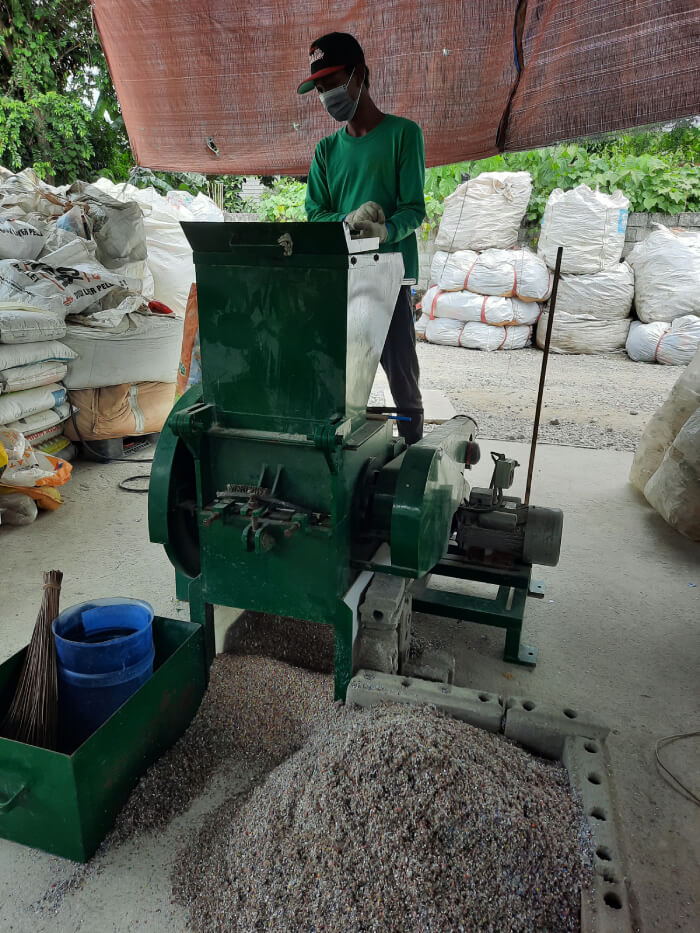
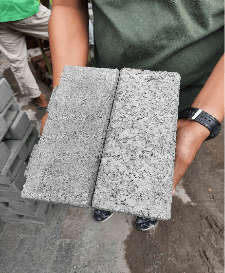
Multi-dimensional impacts
Through these two projects, Dana Asia aims to achieve positive economic, environmental, and social impacts:
1. Economic impact:
Creating jobs in impoverished communities and strengthening local microentrepreneurs through capacity building and microloans will support setting up and scaling sustainable small businesses. Specific microfinance products will be designed for specially designed sustainable small businesses, such as eco-consumer stores.
In the Philippines, “sari-sari” stores are on every corner, stocking essential goods and fresh produce. The project will pilot a new eco-sari-sari model to champion zero-waste retailing with refill stations and single-use plastic alternatives. Examples of such eco stores are popping up across Manila and show the potential to lower the cost of everyday goods by up to 40% compared with the price of conventional retail stores.
Microfinance products will include training elements in sustainability, as well as standard business development and financial management. This new social business activity within housing sites will promote economic growth and improve livelihoods while stimulating business activity.
2. Environmental impact
Dana Asia’s project also targeted to reduce plastic waste through recycling initiatives. Dana Asia’s environmental goal was to emphasize on creating sustainable sources of fresh produce in communities where access to affordable fresh goods can be difficult. Livelihood skills training in home-based gardening, such as mushroom growing, gives community members practical skills that they can use productively to grow vegetables to sell for a small income or to consume to increase the family’s intake of nutritious fresh produce. Working with technical partners, the project will design urban gardening modules for small spaces within urban backyards.
Mushroom houses are an example of this: at only 1.5m x 2m in size they easily fit into a small space with the capacity for 250 mushroom bags. Houses have the potential to grow an average of 2kgs of mushrooms per month over a 4-month cycle. Microfinance options are available for the start-up capital, and fully operational houses can achieve a potential net income of PHP 4,000 (AU$110) per month.
Not only do such activities lead to increased household income levels, but also increase the money circulating at a community level. Improved access to fresh produce also improves food security and promotes sustainable livelihoods.

Mushroom house for micro business and nutritional food source
3. Social Impact
Dana Asia aims to achieve two critical social impact objectives through this project: ecological sustainability and sustainable economic development. Recycling waste plastics will clean up the natural environment and promote responsible consumption.
Microloans bring new options for work and training to the most marginalized, tackling social injustice and opportunity gaps. Stimulation of business activity increases the income circulating among producers and consumers, positively impacting the community. Empowering local communities and building the capacity of local leaders encourages sustainability for long-term social impact.
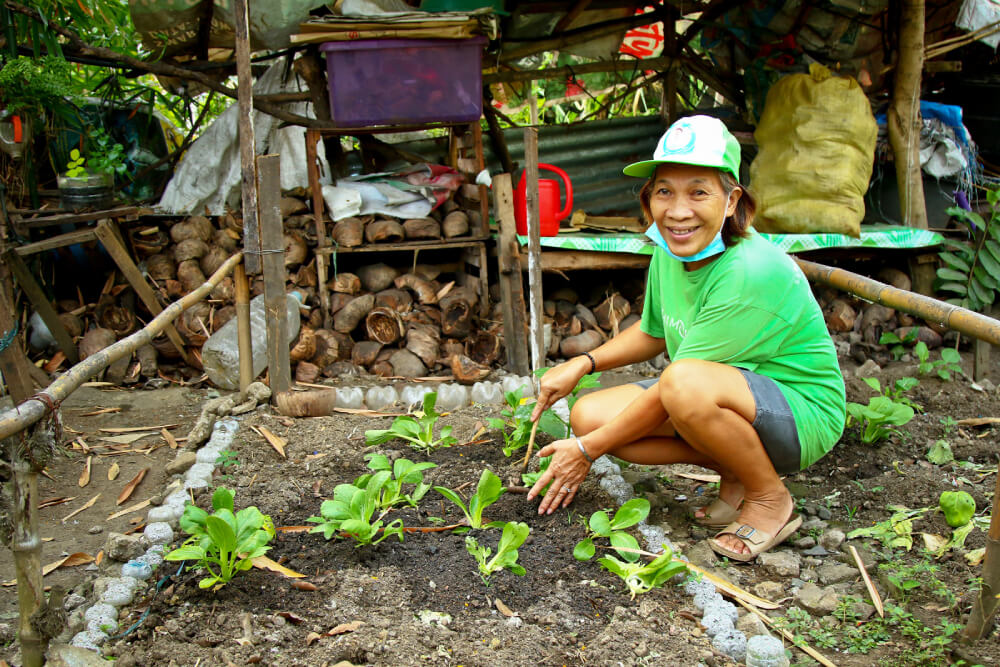
Dana Asia bringing smiles to many.
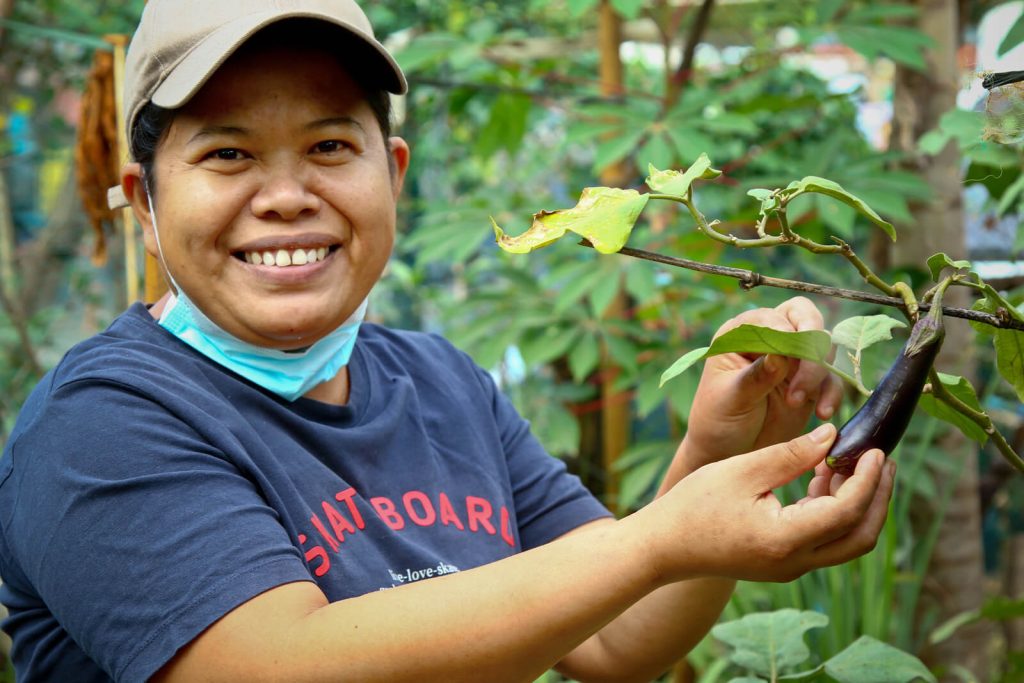
Dana Asia bringing smiles to many.
Project implementation
Projects like these are not without their challenges. Sustainability is a fairly new concept for these communities, and its newness presents two challenges. Firstly, limitations in existing infrastructure mean options for renewable energy, plastic alternatives, recycling systems, etc, are also limited. Many NGOs, businesses, civil society groups, etc, are doing excellent work in this area, with many initiatives showing transformational progress. For widespread adoption of more sustainable practices, collaborative, multi-sector working is essential to have the biggest impact.
Secondly, the more significant challenge is capacity building and changing mindsets towards more sustainable practices. Learnings and real-life experiences within the Philippines context are limited compared with many more developed countries. However, much can be taken from successful initiatives in other countries and adapted for the Philippines context.
The goal is also to bring more environmentally consciousness and changing old bad habits ingrained in the society. A typical example of ingrained bad habit: single-use plastic bags are seen as a cheap option for store owners, but giving them to customers is an entrenched habit.
As is shown by many successful initiatives across the globe, if shops stop offering free plastic bags, customers will soon adjust and simply bring their own. Breaking that habit by introducing convenient alternatives will significantly reduce reliance on single-use plastics overall.
Affordability is also a key factor. Sari-sari stores sell products in sachets, for example, because full bottles are too expensive – buying in small amounts is the only affordable option for a low-income consumer. Sachets offer no economic incentive to be recycled, unlike PET bottles, and will end up in landfills or water sources, contributing significantly to the plastic crisis.
The challenge here is shifting from the short-term view to the long-term. In the long term, bulk purchasing has proven time and again to be cheaper. However, investment is needed for the initial purchase, and more financial resources should be made available to communities to make such economies of scale viable for poorer communities.
Globally, the balance between financial and environmental sustainability is a much-discussed topic. In many cases, the more environmentally friendly approach is more expensive. For families living in extreme poverty, the priority will always be financial sustainability. If there is a risk that a more environmentally sustainable way of conducting business might negatively affect their profit margins, it is unlikely that business owners will be incentivized.
To address this, testing the model is essential to give working examples of how eco stores can be profitable and environmentally friendly. Business owners must first be motivated to take on a new business model for success.
Dana Asia’s work within housing sites aims to challenge tradition and introduce new, innovative thinking methods to establish socially, financially, and environmentally sustainable businesses.
Keeping sustainability as the core message throughout makes solutions to poverty and the plastic crisis possible. The examples given here are real-life examples of projects currently active in Metro Manila, Philippines. None of this would be possible without the support of local partners and funders.
Reference:
∅ Unep.org. 2022. Our planet is drowning in plastic pollution. This World Environment Day, it’s time for a change. [online] Available at: https://www.unep.org/interactive/beat-plastic-pollution/
∅ GAIA. (2021). REGULATING SINGLE-USE PLASTICS IN THE PHILIPPINES. [online] Available at: https://www.no-burn.org/policybriefsup2020/
∅ World Bank (2020). COVID-19 to Add as Many as 150 million Extreme Poor by 2021. [online] World Bank. Available at: https://www.worldbank.org/en/news/press-release/2020/10/07/covid-19-to-add-as-many-as-150-million-extreme-poor-by-2021
∅ Global Citizen. (n.d.). The Pandemic Pushed 4 million More Filipinos Into Poverty in First Half of 2021. [online] Available at: https://www.globalcitizen.org/en/content/philippines-poverty-covid-19/

